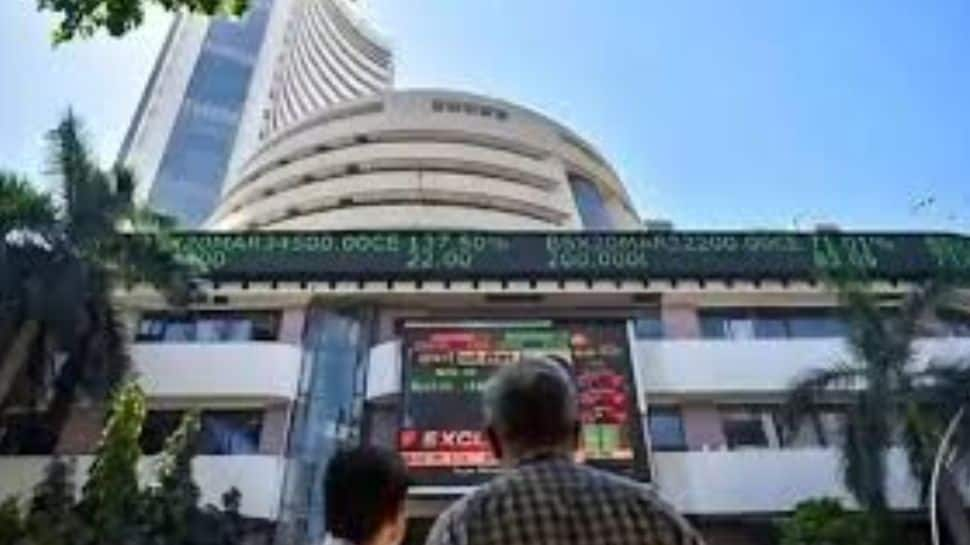Business
Indian Stock Market Set for Volatility Amid Key Global Factors

The Indian stock market is poised for notable fluctuations in the coming week as a combination of domestic and international factors comes into play. Investors are particularly focused on five critical triggers that could shape market sentiment.
US Federal Reserve Meeting
Next week, the US Federal Reserve is set to convene for its policy meeting, where it is expected to discuss interest rates and monetary policy. Any decisions made during this meeting are likely to have far-reaching consequences globally, influencing liquidity and investor confidence. The Indian market is especially sensitive to shifts in US rates, as these changes can significantly affect foreign fund flows.
Second-Quarter Earnings Season
The second-quarter earnings reports for FY26 are beginning to emerge, with major corporations such as Larsen & Toubro (L&T), ITC, and Indian Oil scheduled to announce their results. Investors will scrutinize these figures for insights into corporate performance, sectoral growth, and the overall economic health of India. Strong earnings reports may enhance market confidence, while disappointing results could lead to increased volatility.
According to various analysts, the performance of these companies will be crucial in determining the market’s direction over the next few weeks.
Trade Developments and Agreements
Ongoing trade negotiations between the United States and China constitute another critical global factor influencing market dynamics. Positive developments in these talks could alleviate global trade tensions, potentially benefiting riskier assets such as Indian equities. Conversely, setbacks in negotiations might induce caution among investors, leading to a more conservative approach to market engagement.
Additionally, reports suggest that India is nearing the finalization of a trade agreement with the United States. Clarity regarding this agreement could enhance bilateral trade prospects, particularly benefiting sectors poised for export growth. This development may also boost overall market sentiment.
Gold Price Movements
Gold prices are playing a key role as a barometer for investor risk appetite. Rising gold prices may signal a shift towards safe-haven assets, while a decline could indicate growing confidence in equities. Investors are closely monitoring fluctuations in gold prices, as these changes often influence portfolio allocations and risk management strategies.
In light of these factors, investors are encouraged to stay informed about both global and domestic developments. Strategic asset allocation, careful stock selection, and an understanding of macroeconomic triggers will be essential for navigating potential market volatility in the upcoming week.
-

 World5 months ago
World5 months agoSBI Announces QIP Floor Price at ₹811.05 Per Share
-

 Lifestyle5 months ago
Lifestyle5 months agoCept Unveils ₹3.1 Crore Urban Mobility Plan for Sustainable Growth
-

 Science4 months ago
Science4 months agoNew Blood Group Discovered in South Indian Woman at Rotary Centre
-

 World5 months ago
World5 months agoTorrential Rains Cause Flash Flooding in New York and New Jersey
-

 Top Stories5 months ago
Top Stories5 months agoKonkani Cultural Organisation to Host Pearl Jubilee in Abu Dhabi
-

 Sports4 months ago
Sports4 months agoBroad Advocates for Bowling Change Ahead of Final Test Against India
-

 Science5 months ago
Science5 months agoNothing Headphone 1 Review: A Bold Contender in Audio Design
-

 Top Stories5 months ago
Top Stories5 months agoAir India Crash Investigation Highlights Boeing Fuel Switch Concerns
-

 Business5 months ago
Business5 months agoIndian Stock Market Rebounds: Sensex and Nifty Rise After Four-Day Decline
-

 Sports4 months ago
Sports4 months agoCristian Totti Retires at 19: Pressure of Fame Takes Toll
-

 Politics5 months ago
Politics5 months agoAbandoned Doberman Finds New Home After Journey to Prague
-

 Top Stories5 months ago
Top Stories5 months agoPatna Bank Manager Abhishek Varun Found Dead in Well









